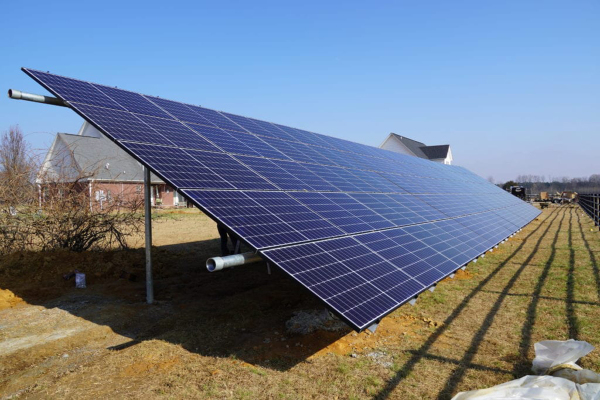social.outsourcedmath.com
A few miles from the sea in Kent in the south of England, hedges of hazel, ivy and briar stand like ramparts separating kingdoms of fruit.
In one field are quinces, dense as golden anvils. Nearby are grey medlars, hard and sour. Pears gleam through red leaves. But the real stars are the apples – more than 4,000 trees, of more than 2,000 varieties. Their fruit clusters along wand-like branches and carpets the ground in a fragrant layer of softly rotting flesh. They smell of a thousand warm afternoons spent snacking in a hammock or up a tree. I kneel under the branches of a particularly laden tree to find the label with the name. It reads, aptly: "Weight."
This is the United Kingdom's National Fruit Collection, a living repository of apples once grown in the British Isles, as well as other fruit. It is not the only apple library out there. The USDA's Plant Genetic Resources Unit in Geneva, New York, and New Zealand's Plant & Food Research's collection, among others, host thousands of apple varieties.
But unlike those collections, which include wild relatives of apples, collected in Kazakhstan or on salty beaches in Alaska, to aid apple breeders in search of new traits, this collection is a record of the British love affair with the fruit. "There's a history of apple production here," says Matthew Ordidge, a senior research fellow at the University of Reading near London and the nation's curator of apples. In the lively café at the collection at Brogdale Farms in Faversham in Kent, he recalls a proclamation made a 100 years ago by apple enthusiast Edward Bunyard: "No fruit is more to our English taste than the apple."
Be that as it may, just a handful of apple varieties are grown commercially in Britain now. "Apple fruit production in the UK is not that big a business," explains Ordidge. "We only produce somewhere around 35% of home produce; we import the rest." Even the apples grown domestically are often of varieties from elsewhere, like Gala (from New Zealand), Jazz (also New Zealand) and Cameo (from the USA).
This state of affairs dates to the 1970s and 1980s, when imported apples like French-grown Golden Delicious stormed the supermarkets. When the dust settled, most English apples were no longer commercially viable.
However, once orchardists in the UK grew vast quantities of the fruit – at the end of the 19th Century there were more than 20,000 acres (81 sq km) of apple orchards in Devon alone – and what's intriguing is that the genes of those trees, whether they were Duchess of Oldenburg or Cox's Orange Pippin, live on unchanged in these fields in Kent.
The explosion of crisp, commercial apple varieties in the last century doomed many other breeds into obscurity. But in a field in Kent in the UK, some of them live on.Veronique Greenwood (BBC)


Martin Baron warned Tuesday that Trump will sue “a lot of media outlets" and "threaten advertisers" once he retakes the White House.Marco Margaritoff (Yahoo News)

Turkish officials have demanded that Kurdish forces withdraw from the Syrian cities of Kobani and Raqqathecradle.co
An international research team led by the Institut Català de Paleontologia Miquel Crusafont (ICP) and the Museu Balear de Ciències Naturals (MUCBO | MBCN) have described a fossil animal that lived between 270 and 280 million years ago in present-day …Miquel Crusafont Catalan Institute of Paleontology (Phys.org)

Entergy Arkansas, which had lobbied against the Little Rock School District's solar project, apparently charged way too much money to hook it up to the power grid.Phillip Powell (Arkansas Times)

Uncover the Wikipedia page by guessing the hidden words.cemantle

Uncover the Wikipedia page by guessing the hidden words.cemantle

The hype is fading, and people are asking what generative artificial intelligence is really good for. So far, no one has a decent answer.Gary Marcus (WIRED)
Foto SBB. Die Hauptarbeiten für den Doppelspurausbau im St. Galler Rheintal sind abgeschlossen. So können die Fernverkehrszüge ab dem Fahrplanwechsel vom 15. Dezember 2024 im Halbstundentakt zwischen Sargans und St. Gallen verkehren.Super User (LOK Report)

President Biden announced today that the government will forgive student debt for another 54,900 borrowers, all of whom took jobs in public service to qualify. The U.S. Department of Education rele…Diane Ravitch's blog
President hails the passage of the legislation after days of uncertainty and negotiations that went down to the wire.Al Jazeera